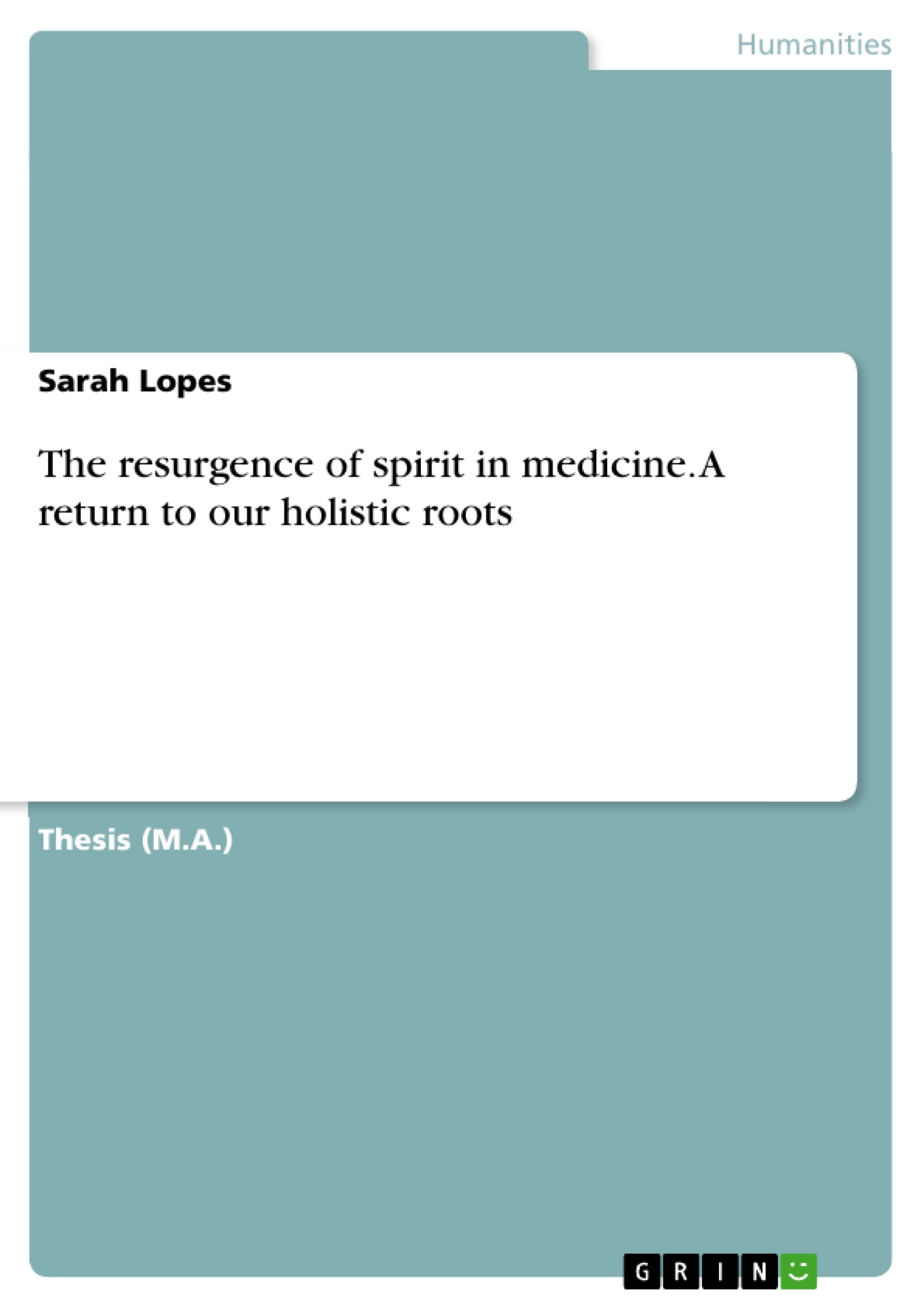The inability to effectively process and heal trauma is one of the defining marks of Western civilization and one of the primary problems that all of global culture is afflicted with. Arguably, most of us are sick. If given a chance to really take a closer look, nearly everyone has something physiologically, biologically, psychologically, emotionally or environmentally out of balance.
Table of Contents
- Introduction
- The Problem
- The Solution: Reintroducing Spirit into Medicine
- The Spirit of Medicine: A Historical Perspective
- The Importance of Traditional Healing Systems
- The Role of Diet and Nutrition
- The Power of Plants and Herbs
- The Body-Mind Connection
- The Importance of Self-Care
- Conclusion
Objectives and Key Themes
This thesis explores the resurgence of spirit in medicine, advocating for a return to holistic approaches that emphasize the interconnectedness of mind, body, and spirit. It argues that the modern Western medical system, with its focus on treating symptoms rather than addressing root causes, has contributed to a state of widespread illness and imbalance.
- The limitations of the modern medical system
- The importance of traditional healing systems and holistic approaches
- The role of diet, nutrition, and lifestyle in health and well-being
- The power of plants and herbs in healing
- The connection between the mind, body, and spirit
Chapter Summaries
- Introduction: This chapter introduces the concept of spirit in medicine and argues that modern society suffers from a lack of understanding and appreciation for its role in health and well-being.
- The Problem: This chapter explores the limitations of the modern medical system and its focus on treating symptoms rather than addressing root causes. It discusses the impact of modern lifestyle factors on health and the need for a more holistic approach.
- The Solution: Reintroducing Spirit into Medicine: This chapter presents the argument for a return to holistic medicine, emphasizing the importance of traditional healing systems, the power of plants and herbs, and the connection between the mind, body, and spirit.
- The Spirit of Medicine: A Historical Perspective: This chapter examines the historical roots of holistic medicine, exploring ancient healing traditions and their emphasis on the interconnectedness of mind, body, and spirit.
- The Importance of Traditional Healing Systems: This chapter highlights the value of traditional healing systems and their focus on addressing the root causes of illness. It discusses the role of indigenous knowledge and the importance of cultural sensitivity in healthcare.
- The Role of Diet and Nutrition: This chapter explores the importance of diet and nutrition in maintaining health and well-being. It discusses the impact of modern food production and processing on health and the need for a more natural and whole-foods approach.
- The Power of Plants and Herbs: This chapter examines the therapeutic properties of plants and herbs and their role in traditional healing systems. It discusses the importance of using natural remedies and the need for further research into their potential benefits.
- The Body-Mind Connection: This chapter explores the connection between the mind and body and the impact of stress, trauma, and emotional factors on physical health. It discusses the importance of addressing emotional and psychological issues in promoting well-being.
- The Importance of Self-Care: This chapter emphasizes the importance of self-care and personal responsibility in maintaining health. It discusses the role of lifestyle choices, stress management, and mindfulness in promoting well-being.
Keywords
Holistic medicine, traditional healing systems, spirit, mind-body connection, diet, nutrition, plants, herbs, self-care, well-being, trauma, stress, modern medicine, Western civilization, illness, disease, imbalance, homeostasis.
Frequently Asked Questions
What is meant by "holistic medicine"?
Holistic medicine is an approach that considers the whole person—mind, body, and spirit—in the quest for optimal health and wellness.
Why is modern medicine criticized in this text?
It is criticized for focusing primarily on treating symptoms rather than addressing the root causes of illness, often neglecting the spiritual and emotional aspects of healing.
What role does the mind-body connection play?
The mind-body connection emphasizes how emotional, mental, and spiritual factors can directly impact physical health and the healing of trauma.
How important are traditional healing systems?
Traditional systems are vital as they often possess indigenous knowledge about plants, herbs, and the spiritual dimensions of health that modern medicine lacks.
What can individuals do for their own well-being?
The text emphasizes self-care, proper nutrition, and mindfulness as essential components for maintaining balance and health.
- Citar trabajo
- Sarah Lopes (Autor), 2014, The resurgence of spirit in medicine. A return to our holistic roots, Múnich, GRIN Verlag, https://www.grin.com/document/306398



